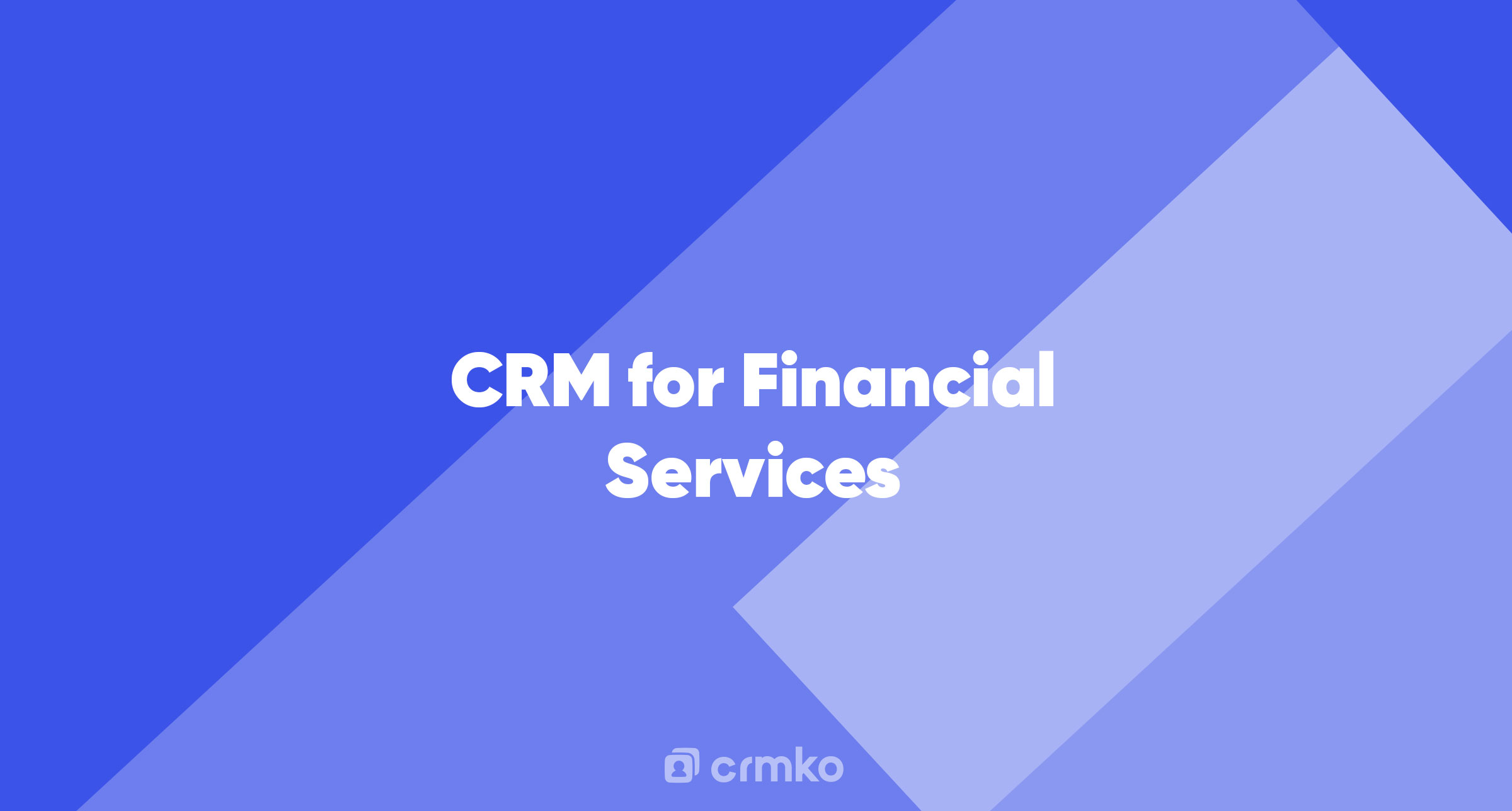In today's digital age, customer relationship management (CRM) software has become an essential tool for financial services companies. With the increasing demand for personalized and efficient customer experiences, CRM solutions have evolved to meet the specific needs of the financial industry. In this article, we will explore the benefits and features of CRM for financial services, and how it can transform the way financial institutions operate.
What is CRM for Financial Services?
CRM software, specifically designed for financial services, is a powerful tool that helps businesses track and manage interactions with their clients. It provides a centralized platform to capture, analyze, and utilize customer data, enabling financial institutions to deliver personalized services and build stronger relationships with their clients.
Why Choose CRM for Financial Services?
Financial institutions, including wealth management firms, investment banks, and insurance companies, can greatly benefit from implementing CRM software. Here are some key reasons why CRM is essential for financial services:
- Improved Customer Experience: In the highly competitive financial industry, providing an exceptional customer experience is crucial for customer retention and loyalty. CRM software enables financial institutions to track customer interactions across multiple channels, such as phone calls, emails, text messages, and mobile apps. This comprehensive view of customer interactions allows institutions to personalize their services and deliver a seamless customer experience.
- Automation and Efficiency: CRM solutions automate tasks such as data entry, marketing outreach, and follow-ups. By eliminating manual processes, financial institutions can save time and resources, allowing their teams to focus on high-value activities. Automation also ensures consistent and timely communication with clients, improving efficiency and productivity.
- Analytics and Insights: CRM software provides advanced analytics capabilities, allowing financial institutions to gain valuable insights into customer behavior, preferences, and trends. By analyzing data, institutions can identify opportunities, segment customers, track performance metrics, and make data-driven decisions.
- Compliance and Security: The financial industry faces strict regulations and security requirements. CRM for financial services ensures compliance by securely storing and managing customer data, adhering to the latest security standards, including GDPR. This helps financial institutions build trust with their clients and maintain regulatory compliance.
Key Features of CRM for Financial Services
CRM software for financial services offers a wide range of features tailored to meet the specific needs of the industry. Here are some key features to look for when choosing a CRM solution for your financial institution:
1. Customer Tracking
A CRM system should allow you to track customer interactions across various channels, including phone calls, emails, text messages, and mobile app usage. This comprehensive tracking helps you gain a complete view of each customer's journey, enabling personalized and targeted communication.
2. Automation
Automation is a critical feature of CRM for financial services. It allows you to automate repetitive tasks such as data entry, marketing outreach, and follow-ups. By automating these processes, you can save time, reduce errors, and ensure consistent communication with your clients.
3. Flexibility and Mobility
Modern CRM solutions are cloud-based and accessible across devices, making them ideal for financial institutions with a remote workforce. Cloud-based CRMs provide the flexibility and mobility needed to access customer data and collaborate from anywhere, at any time.
4. Analytics and Reporting
Effective analytics and reporting capabilities are essential for financial institutions. A CRM system should provide robust analytics tools to segment customers, track performance metrics, and analyze data. These insights help institutions make informed decisions and identify new business opportunities.
5. Customer Data Management
CRM software should offer comprehensive customer data management features. This includes storing, creating, and analyzing customer information such as product preferences, account types, and eligibility for specific services. A complete understanding of customer data enables personalized and targeted marketing and service offerings.
6. Integration with Existing Systems
A CRM solution for financial services should seamlessly integrate with existing business applications, such as email newsletter builders, social media accounts, and website builders. Integration with other systems streamlines workflows, enhances productivity, and ensures a connected working environment.
7. Support and Help Desk Integration
CRM software should provide customer support tools and integrate with help desk platforms. This helps financial institutions resolve customer issues quickly and provide seamless support. Features like knowledge bases, chatbots, and live chats enable 24/7 support and enhance the overall customer experience.
8. Security and Compliance
Security and compliance are paramount in the financial industry. CRM for financial services should adhere to the latest security standards, such as GDPR, and provide robust security measures to protect customer data. Compliance features ensure that financial institutions meet regulatory requirements.
9. Account Management
CRM software should enable efficient account management, allowing financial institutions to view all transactions and interactions with each institution or client. This comprehensive view helps institutions better understand their clients' needs and provide personalized services.
10. Sales and Marketing Automation
CRM solutions should offer features to automate sales and marketing processes. This includes email marketing with customizable templates, list segmentation for targeted campaigns, and analytics to track campaign performance. Automation streamlines sales and marketing efforts, resulting in improved lead generation and conversion rates.
Choosing the Right CRM for Financial Services
When selecting a CRM solution for your financial institution, consider your specific requirements and goals. Look for a CRM that offers the features mentioned above and aligns with your business needs. Some popular CRM solutions for financial services include HubSpot CRM, Salesforce, and Zoho CRM.
Conclusion
CRM software has become an indispensable tool for financial services companies. It enables financial institutions to enhance customer experiences, automate processes, gain valuable insights, and ensure compliance. By implementing a CRM solution tailored to their specific needs, financial institutions can transform the way they operate, improve customer satisfaction, and drive business growth.
Investing in CRM for financial services is a strategic decision that can give your institution a competitive edge in today's digital landscape. Embrace the power of CRM and unlock the full potential of your financial institution.
